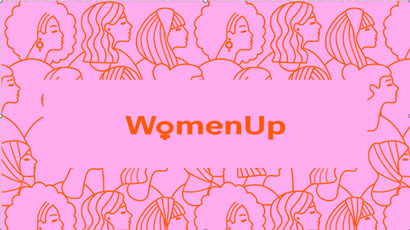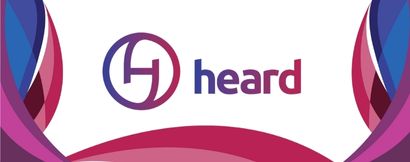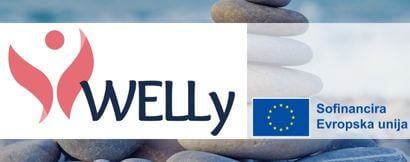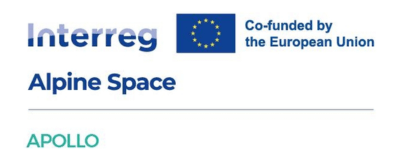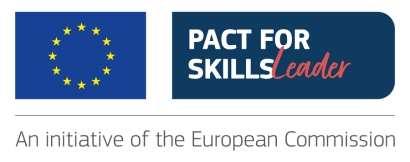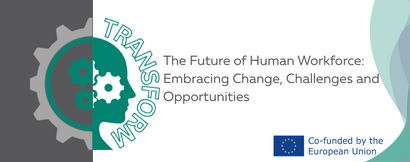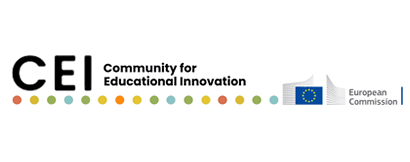Professional Degree – 1st Cycle Quality Management
Fundamental Objectives
Fundamental Objectives of the First Cycle Professional Degree in Quality Management
The aim of the first cycle professional degree in Quality Management is providing students with fundamental knowledge from the field of organization sciences with a broad understanding of research methods and a good knowledge of models, standards, and tools for quality.
Graduates of the first cycle will be able to understand the overall meaning and have the opportunities to use knowledge that is based on contemporary organization theory in a real environment within organizations that emphasize determining opportunities for continuous improvement of quality products and services, processes, and the entire process-based organization.
With a broad interdisciplinary knowledge, graduates of the first cycle programme will be able to participate in the creative work process within an organization. These organizations can vary among economic, public administration, non-governmental organizations. Also, first cycle graduates have the opportunity to continue their studies at the second cycle and later at the third cycle.
Upon completion of the first cycle professional programme in Quality Management students are provided with the internalisation of building blocks within contemporary organization theory that is based on an organization as a target-oriented relationship among individuals and people and internalisation of the concept of autopoiesis in reference to quality management and excellence founded on the spiralling order of planning, doing, checking, and acting (Deming’s PDCA cycle).
A crucially important emphasis will be given on understanding contemporary approaches, models, and tools used by exemplary organizations in their daily practices.
According to the learning outcomes, the study program is classified into 7th level of the Slovenian Qualifications Framework (SQF), 6th level of the European Qualifications Framework (EQF) and the 1st level of the Qualifications Frameworks in the European Higher Education Area (QF-EHEA).
Curriculum
Curriculum
In November 2024, the updated curriculum of the First Cycle Professional Degree in Quality Management was adopted, which will be implemented from the academic year 2025/2026 and will apply to newly enrolled students.
Existing students who make regular progress will be able to complete the study program according to the old curriculum, but may choose to complete the study according to the new curriculum. In this case, they will receive a notice from the Students Affairs Office about the obligations they have to complete in order to complete their studies under the new curriculum.
The rest of the students will complete the study program according to a new curriculum.
The first cycle professional degree in Quality Management lasts for three years (six semesters) and is awarded with 180 ECTS. The programme is formed between common 20 compulsory/required courses and 5 elective courses, an internship, and the undergraduate diploma thesis.
General Competences
General Competences
Students in the first cycle professional degree in Quality Management will acquire the following general competencies:
- Comprehending and understanding processes, process-based organizations and the ability to manage continuous improvements.
- Comprehending and understanding a wide range of approaches, models, tools, and standards for continuous quality improvement of organizations and application in real environments.
- Use and develop methods and techniques for efficient and effective process management and continuous improvement of quality of work, products, and services.
- Ability to analyse, synthesize, and to apply knowledge in practice.
- Applying research methods, procedures, and processes in the field of organization studies.
- The ability to establish and maintain cooperative relations for teamwork and with other interested individuals as well as the ability for creative dialogues.
- The development of critical and self-critical assessment.
- Knowing the importance of quality and enhancing the quality of professional work through autonomy (self-) critical, (self-) reflexivity and (self-) evaluation.
- Ethical reflection and commitment to professional ethics in a social environment.
- The ability to manage organizational change within an organization in response to changes in the environment.
- Sensitivity to individuals, directing relationships among them, and the development of communication skills and skills in domestic and international environments.
- Ability to establish and maintain partnerships with all stakeholders (consumers, employees, owners, social environment).
- Ability to lead departments and / or groups, organizing active and independent tasks, and training employees.
- The ability to connect interdisciplinary knowledge from various subjects.
- Qualifications in being a mentor, for professional development, and lifelong learning.
- Developing and using digital competences domestically and internationally.
Subject-Specific Competencies
Subject-Specific Competencies
Students in the first cycle professional degree in Quality Management will acquire the following subject-specific competencies:
- Internalisation of building blocks within contemporary organization theory that is based on an organization as a target-oriented relationship among individuals and people.
- Knowing and understanding the concept of autopoiesis in reference to quality management and excellence founded on the spiralling order of planning, doing, checking, and acting.
- Ability to understand and apply contemporary organization theories in a practical environment.
- Applying methodology and technology research in the field of organization studies.
- The ability to understand mathematical and statistical principles with emphasis on their applicability in practice.
- Active communication in a foreign language with an in-depth knowledge of terminology from the field of organization studies.
- Knowledge and understanding of the philosophy, approaches, models, tools, and standards of total quality and business excellence as well as competence in their applicable use in practice.
- Ability to identify, control, and the continuous improvement of processes in an organization and its links to a comprehensive system of processes.
- Internalisation of decisive important directives towards the expectations of consumers and management of fundamental concepts and methods of marketing.
- Knowledge of the basic concepts in the process of developing new products and services.
- Knowledge of approaches and models of the quality control process in manufacturing products and services.
- Ability to recognize and manage partner relationships with suppliers and the entire supply chain, sales, and after-market.
- Knowledge and management of logistical processes and their interconnectedness with other processes within the organization.
- Managing key practical approaches in the area of human resource management in terms of releasing their creative potential.
- Ability to identify and manage key aspects in the economics of organizations.
- Applying basic knowledge and practical approaches to achieve effective and efficient management of an organization with an emphasis on leadership by example, business communication, management of projects, informatisation of processes and systematic thinking.
- Training for managing and continuously improving work in production and service organizations.
Course content
Course content
Fundamentals of Organizations
Lecturer: dr. Stojan Črv, Assistant Professor
- Concept and role of organizations.
- Organizational structures and structure of organization.
- Methods of researching organizations.
- Organizing functions.
- Organizational design.
- Organization of work.
- Evaluating work.
- Organizational process.
- Organizing group work.
- Organizational strategy.
- Organizational culture.
- Changing contemporary organizations.
- Examples of good practice.
Research Methodology 1
Lecturer: dr. Mihael Nedeljko, Assistant Professor
- Organizational science and science research.
- Research goals and research designs.
- Theory and experiences, scientific findings and causality.
- Research methods.
- Qualitative research:
- Paradigm of qualitative research.
- Features and the development of qualitative research.
- Research problem and research questions.
- Analysis of qualitative methods.
- Combined and mixed methods of research:
- Reasons to implement mixed method.
- Combined and mixed methods in research of complex problems.
- Quantitative research:
- Basic features of quantitative research.
- Association between variables and hypothesis.
- Measurement and measurement instruments in quantitative research.
- Analysis of data and presentation of data.
- Objectivity, valuation, and ethic foundations of research
Fundamentals of Management
Lecturer: mag. Iris Fink Grubačević, senior lecturer
- Fundamentals of management
- Organization as a system
- Organisation and management development
- Organisational culture and company philosophy
- Business ethics of management
- Leading, decision-making and responsibility
- Tasks of managers
- Global management
Business Statistics
Lecturer: Lejla Imamović Lerić, lecturer
- Basic concepts of statistics.
- Editing and displaying statistical data.
- Relative numbers / statistical degrees: rang. quant.
- Mean values: median, mode, arithmetic mean.
- Data variability: variance (dispersion), standard deviation.
- Asymmetry and measures of asymmetry.
- Time series, concepts, analysis, trends.
- Correlations, t-test
- Regression Chi-square test.
- Random patterns.
- Concepts of statistical hypothesis.
- Hypothesis testing.
- Null hypothesis, alternative hypothesis.
Business English 1
Lecturer: Mihaela Pečnik, lecturer
- Introduction and review.
- Topics and terminology from various areas of business-administrative areas.
- Professional vocabulary and selected grammar concepts.
- Written and oral communication using professional expressions, content and events as well as communication for everyday use at the B1/B2 level on the Common European Framework of Reference for languages.
- Predstavitev in pogovor o organizacijah, različnih procesih v organizacijah, organizacijskih strukturah, menedžmentu in kakovosti
- Business communication in various situations and contexts.
- Digital literacy.
- Current events around the world.
Business German 1
Lecturer: Irena Golobič, lecturer
- Assessment and review of grammar and selected vocabulary.
- Introductions of self, colleagues, companies, structure of a company and types of companies.
- Receiving guests/customers/business partners including talks, planning the itinerary for the visitor, scheduling, reservation of hotel rooms, tables at restaurants, etc.
- Talks about private topics that includes talking about family members, non-business events, talking about hobbies and free time, completing forms.
- Needs, ordering and purchasing including samples, offers and ordering, comparison of goods, planning business trips.
- In the office and out in the field including tools and functions of an office, fairs, orientation.
- Numbers and data that includes describing the trip, companies, work organization, and describing people.
- Digital transformation and changes in companies.
- Selected grammatical items.
- Seminar paper presentation (speech presentation).
Total Quality Management and Business Excellence
Lecturer: Matej Klasinc, lecturer
- Change as an issue and opportunity.
- Total quality as a business philosophy of continuous improvement.
- Excellence.
- From management quality to quality management.
- Economic aspects of quality.
- Principles of total quality management and business excellence.
- Models of quality improvement and business excellence.
- Aspects of sustainability, climate change and digiti-zation in the management system
- Methods of quality improvement and business excellence.
- Standardization and standards.
- Quality functions in organizations.
- Examples of good practices.
Process-based Organizations
Lecturer: dr. Matej Jevšček, Assistant Professor
- Theory of process organization.
- Concept of process organization.
- Process design of the organization.
- Changes in organizations.
- Connections between processes and strategy.
- Main, support, and management processes in organizations.
- Management of processes within organizations.
Marketing
Lecturer: dr. Armand Faganel, Full Professor
- Defining basic concepts of marketing. Marketing development.
- Basic market-oriented strategic planning of an organization, the meaning of consumer-oriented marketing.
- The importance of the vision and mission of the organization in creating strategies.
- Analyzing internal and external environment – SWOT analysis. Finding competitive advantages.
- Developing marketing mix with influence of internet and digitalisation.
- Marketing management.
- Market research.
- Marketing environment analysis – micro and macro business environment.
- Definition of product (service), level of the product (service), decisions on brand naming, decisions for online products.
- Marketing services and some aspects of the marketing mix for service industry.
- Pricing and conditions.
- Business distribution of products and marketing logistics.
- Direct marketing and electronic marketing.
- International marketing.
- Practical examples of marketing programs.
Development of products and processes
Lecturer: Branka Bradica, lecturer
- The role and importance of research and development.
- Strategy of Development.
- Products life-cycle.
- Designing and developing products.
- Development of process.
- Concurrent engineering.
- Research-development process and projects.
- Change Management.
- Aspects of developing products and processes in models, standards, and methods of total quality and business excellence.
- Sustainable Product Design (selection of environ-mentally friendly material resources, designing products with a long lifespan, eco-innovations).
Theory of Organization
Lecturer: dr. Boris Bukovec, Emeritus Professor
- What is theory of organization.
- Defining organization.
- Development of organizational science.
- Preliminary examinations of organizations.
- Classical theory of organization.
- Neoclassical theory of organization.
- Modern theory of organizations.
- Postmodern theories of organization.
- Organization and 4.0 industrial revolution.
- Organization and sustainable development.
- Examples of good practice.
Production
Lecturer: Branka Bradica, lecturer
- Determining the production strategy.
- Business operating system
- Estimating the required volume of production.
- The production program.
- Ensuring production capacities.
- Organizing the work process.
- Designing work for the work place.
- Quality of products and services.
- Production planning.
- Production process management tools
- Inventories of materials and products.
- Total productive maintenance (TPM).
- Structuring the production functions in the organization.
- Examples of good practices.
- Production functions in models, standards, and methods of total quality and business excellence.
- Sustainability in the Production Process (Efficient resource utilization, waste reduction, circular econo-my, sustainable product design, digitalization, and smart manufacturing).
Purchasing
Lecturer: dr. Božidar Lenarčič, assistant professor
- Purchasing process
- Modern procurement
- Organization of purchasing
- Ethics in purchasing business
- Supplier Relationship Management
- International Commercial Terms (Incoterms)
- Category management
- Sourcing methods (RFI/RFQ)
- Harvard negotiations
- Selection of suppliers
- Development of Purchasing Strategy
- Product & Market
- Business Requirements
- SWOT
- Strategic options
- Stakeholder Mapping
- Five Forces
- Kraljic Matrix
- Examples of good practices (e-auction, CCR, DTC, PMI (Purchasing index), TOP 20, TCO)
Logistics
Lecturer: dr. Beti Godnič, lecturer
- Definition of logistics and its role in the economy.
- Development of logistics.
- Definition of supply chain.
- The role of logistics in the organization.
- Organizing the business system.
- Key logistic activities.
- Manufacturing company’s logistic systems and subsystems.
- External, internal transport, marine, air, rail, road; cost, internal, distribution and after—sales logistics.
- Logistics processes in the organization and inventory management.
- Types of inventories and basic model of optimal order quantities and costs of inventories.
- Using ABC analysis for inventory optimization.
- Characteristics of various modes of transport in quality of transport services and choosing appropriate transportation.
- Factors of transportation costs.
- Cost optimization in the logistics system.
- Improving the efficiency of logistics processes.
- Total planning in the supply chain.
- Supply chain management.
- Impact of globalization and global supply chain.
- Examples of good practices.
Legal Framework of Business Management
Lecturer: Janja Umek, lecturer
- Basic legal concepts.
- Legal acts. The hierarchy of legal acts and their use.
- The constitutional system of the Republic of Slovenia.
- Introduction to the Law of the European Union.
- Fundamentals of corporate law.
- Fundamentals of property law.
- Fundamentals of law of obligations.
- Contracts.
- Introduction to security law.
- Introduction to the law of negotiable instruments.
- Fundamentals of banking transactions.
- Introduction to intellectual property law.
- Introduction to labour law.
Human Resource Management
Lecturer: Dr. Tatjana Dragovič, Associate Professor
- The history of HRM, its context and challenges
- HR as a strategic parameter, contributing to company performance.
- Critical reflections on ethical behaviour and sustainability
- Manning an organisation, including issues such as managing diversity.
- Learning and development
- Management of performance and reward
- Workplace relations
- HRM in an international context (comparative HRM)
- HRM in multinational enterprises (international HRM)
- HRM in other contexts (SMEs and the not-for-profit sector)
- New trends and development
Economics of Organization
Lecturer: dr. Magda Lužar, Assistant Professor
- Defining organization, economics of organization and management, businesses, entrepreneurs, entrepreneurship, circular economy.
- What is sustainable operation or sustainable development and the definition of the ESG acronym in the organization, LCA life cycle analysis.
- Definition of standards: ISO 9001 and ISO 14001.
- Definition of supply and demand, market performance.
- Business environments of organizations.
- Sharing and coordinating work in the organization.
- Costs; various aspects of cost analysis.
- Elements of the business process and cost management.
- Price setting.
- Business result.
- Assets and liabilities.
- Business book-keeping.
- Business analysis, efficiency, and effectiveness.
- Business decision-making.
- Examples of good practice
Project Management
Lecturer: dr. Andrej Dobrovoljc, Associate Professor
- Projects and project management.
- Project organization and the project office.
- Designing a project idea.
- Project planning (activities, costs, resources).
- Starting a project.
- Project implementation and change management.
- Risk management.
- Project supervision.
- Closing the project.
- Software support for project management.
- Project Management and Digital Transformation
Informatisation of Business Processes
Lecturer: dr. Andrej Dobrovoljc, Associate Professor
- Processes and process organization
- Customer model
- Identification of key business processes
- Identification of key entities and their states within the process.
- Process modeling.
- Drawing state diagrams and process diagrams.
- Business process reengineering and improvement.
- Definition of process key performance indicators.
- Informatization of processes.
- Digital transformation of Business
Business English 2
Lecturer: Mihaela Pečnik, lecturer
- Introduction and Review.
- Experience and competences.
- Various topics and terminology from business-administrative science (e.g. marketing, organization, sales, soft skills, intercultural communication).
- Presentation and discussion of organizations, SWOT analysis, presentation of marketing products.
- Reading and creating professional texts that are connected with other courses, writing CVs, applications, notes, reports, writing common texts (summaries, presentations), appropriate articulation and communication.
- Business communication in various situations.
- Digital literacy.
Business German 2
Lecturer: Irena Golobič, lecturer
- Assessment and review of grammar and selected vocabulary.
- Numbers and data that includes describing the trip,
- companies, work organization, and describing
- people.
- Finding jobs in Germany including applying for jobs, talking about the job, describing insurance activities.
- Planning and scheduling including planning business trips, schedules, organization, planning a trip, talking about a process.
- Learning about ICT, freely talking about errors, writing complaints/refunds, calling technical help.
- New jobs that includes introducing your job, expressing your wishes, congratulations, talking with colleagues.
- At the fair including items before, during and after the fair, presenting services and goods, talking about the fair.
- Sustainability and innovations.
- Selected grammatical items.
- Seminar paper presentation (speech presentation).
Change Management
Lecturer: dr. Milan Simončič, Assistant Professor
- New paradigm of social change management.
- Complexity of multi-layered changes.
- Success in organizational change management.
- The process of organizational change management.
- Human resource management and management of change.
- Contemporary approaches and models of organizational change management.
- New paradigm for organizational change management.
- Examples of good practice.
- Aspects of change management in models, standards, and methods of total quality management and business excellence.
Work-placement
Lecturer: dr. Boris Bukovec, Emeritus Professor
The purpose of the work placement programme is to use the theoretical knowledge gained throughout the study programme. As such, an individualized work placement programme is developed taking into account the following guidelines:
- To understand about various types of organizations
- To understand organization’s position in the environment
- To understand material and human resource requirements for work in an organization
- Understanding and be able to work in various positions as well as learn about required skills that are needed for such positions
- Learning about various job positions and occupations
- Creating project tasks from the organization field and total quality management processes
- Providing opportunities to cooperate in team work
- Becoming used to work discipline and responsibly carrying out tasks
- Becoming used to the culture of the work environment and rules of behavior in an organization
- Learning about an organization’s management systems with an emphasis on quality management systems and excellence
- Become acquainted with an organization’s information system
- Cooperating in preparing and carrying out projects
Management Systems
Lecturer: Matej Klasinc, lecturer
- Management systems of organization
- Quality management systems and Quality management systems according to ISO 9001 standards.
- Environmental management systems and Environmental managements systems according to ISO 14001 standards.
- Safety management system and occupational health and Safety management system and occupational health according to OHSAS 18001 and ISO 45001 standards.
- Socially responsibility management system and socially responsible management systems according to ISO 26000 standards.
- Information security management system and Information security management system according to ISO/IEC 27001.
- Integration of management systems.
- Aspects of sustainability, climate change and digiti-zation in management systems.
- Continuous improvement of quality management systems. Integrated management system certification.
- Examples of good practices.
Strategic Management
Lecturer: dr. Tatjana Mlakar, Assistant Professor
- Policies and planning in organizations, concept of strategic planning.
- Basic theories of growth and development of organizations.
- Process of developing business directions.
- Analysis of business environment and anticipation.
- Vision and mission of the organization.
- Comprehensive assessment of the organization.
- Developing strategic planning objectives and planning strategies, classification of strategies, characteristics of individual strategy types.
- Complete (corporation) business strategy.
- Business strategies.
- Developing strategic guidelines for sustainable business.
- Functional strategies.
- Implementing and managing strategies.
- Organization of strategic planning in an organization.
- Management in family business.
- Examples of good practices.
Business Communication
Lecturer: Irena Potočar Papež, senior lecturer
- Theoretical foundations, role and definition of business communication in the third millennium.
- Type and forms of communication.
- Breadth and direction of communication.
- Quality in communication.
- Business communication ethics.
- Internal and external organizational communication.
- Creative thinking and communication.
- Public performance – communication on meeting, conference …
- Netiquette
- Business etiquette
- Digital Communication and cooperation.
- Socially responsible communication.
- Examples of good practices
Quality Management System
Lecturer: Matej Klasinc, lecturer
- Quality management system as part of business.
- Quality management systems according to the standard of ISO 9001.
- Establishing quality management system.
- Quality manual.
- Quality management system assessment.
- Quality management system certification.
- Integration of quality management system with other management systems.
- Sustainability aspects and digitization in the quality management system
- Costs of quality.
- Examples of good practice.
Environmental Management System
Lecturer: dr. Matej Jevšček, Assistant Professor
- Environmental management system as part of business.
- Environmental management system according to ISO 14001 standard.
- Implementing an environmental management system.
- Environmental management system. Documentation.
- Environmental management system audit.
- Environmental management system certification.
- Integrating environmental management system with other systems of management.
- Examples of good practice.
Safety Management System and Occupational Health
Lecturer: dr. Tatjana Mlakar, Assistant Professor
- Safety and health management system as part of a business.
- Safety management system and occupational health according to the OHSAS 18001 standard.
- Establishment of occupational safety and health.
- Rules of procedure for occupational safety and health.
- Assessment of occupational safety and health.
- Integration of occupational health and safety with other management systems.
- Examples of good practice.
Social Responsibility of Organizations
Lecturer: dr. Milan Simončič, Assistant Professor
- Theoretical foundation, the concept of social responsibility.
- Social responsibility management system according to ISO 26000 standards.
- Model of excellence in the function of social responsibility.
- Corporate social responsibility, the role of management and leadership.
- Social responsibility and sustainable development.
- National strategy of social responsibility in the EU and in Slovenia.
- Good practices.
Entrepreneurship
Lecturer: dr. Magda Lužar, Assistant Professor
- Company, entrepreneur, eco-entrepreneur/green entrepreneur, entrepreneurial ecosystem, social entrepreneurship, digital entrepreneurship, green entrepreneurship, sustainable entrepreneurship
- Idea and business opportunity
- Feasibility analysis
- The importance of a business model in sustainable development
- Competitive and industry analysis
- Preparation of a business plan
- Financial assessment and capital raising
- Market selection and promotion
- Eco/green innovations
- Entrepreneur's mental health
- Practical business cases
Career planning
Lecturer: Irena Potočar Papež, senior lecturer
- Introduction to career
- Benefits of career planning
- Career transition and career break
- Career Tools
- Career development in organization
- Time management and setting goals
- Mental processes
- Career trademark
- Personal career plan
- Self-promotion and Career Management
- Examples of good practice
Business Coaching
Lecturer: Dr. Tatjana Dragovič, Associate Professor
- Theoretical foundations, role and definition of coaching
- Genres and contexts of coaching
- Business coaching and mentoring
- Competencies of a coach
- Coaching concepts
- Coaching tools
- The principles of business coaching
- The role of business coaching in professional development of individuals and organizations
- Ethics in coaching
- Examples of good practices
Undergraduate Research Seminar
Lecturer: Dr. Annmarie Gorenc Zoran, Full Professor
- Theoretical foundations, role and definition of coaching
- Genres and contexts of coaching
- Business coaching and mentoring
- Competencies of a coach
- Coaching concepts
- Coaching tools
- The principles of business coaching
- The role of business coaching in professional development of individuals and organizations
- Ethics in coaching
- Examples of good practices
Project Practicum I
Lecturer: Jerneja Šurla Gapšeršič, lecturer
Project Practicum I is based on authentic and experien-tial learning, which is a method of teaching that directly engages students in experience and focused reflection in order to increase knowledge, develop skills, define and to clarify values as well as develop the ability to contribute to their community. Focused reflection en-courages students to properly link their academic, pro-fessional and personal motivation and goals. Through these connections, students will be able to apply their learning process to further experiences and contexts.
- Presentation of the activities of the faculty:
- Events
- Projects
- Research
- Tutoring
- Faculty organs
- Self-evaluation
- Sustainable practices
- Activities to choose from (student work for 25 hours is 1 ECTS):
- Assisting the organization and / or activities of FOS events.
- And/or research or FOS projects that are not part of the compulsory components of the study programs.
- And/or tutoring, work with students, FOS offi-cial bodies.
- And/or participation in the self-evaluation of FOS.
- Each student maintains a portfolio in which they invest their work, as well as certificates and evidence of participation in the activities of Practicum I and ot-her. Includes focused reflections regularly.
Fundamentals of Work WellBeing Management
Lecturer: Dr . Annmarie Gorenc Zoran, Full Professor
- Introduction
- Promoting Health & Human WellBeing in the Workplace
- Legislation of Work-Related Stress
- Theoretical Perspectives
- Leadership and Management
- Remote Work, Technology and WellBeing and Sustainable Approaches
- Programs for Employees, Leaders, and Managers
- Effective Communication for Work WellBeing in the Workplace
- Best practices and case studies.
Military management, leadership and military ethics
Lecturer: dr. Boris Bukovec, Emeritus Professor
- The concept of military leadership, command and control.
- Research methods of military skills and operational research.
- The process of planning military activities.
- Staff culture.
- Human resources management.
- Military professional code and warrior ethics.
Military defense systems
Lecturer: dr. Darko Ščavničar, Assistant Professor
- Military subsystem of national security of the Republic of Slovenia.
- The operation of the Slovenian Armed Forces in the system of collective defense and security.
- The legality of the operation of military force in war, peace and crisis response operations.
- International humanitarian law.
Military operations
Lecturer: dr. Tomaž Kladnik, Associate Professor
- Historical development of warfare and military sciences.
- War, military operations, armed conflicts;
- Warfighting environments.
- The doctrines of the land, air and naval forces and the principles of operation of the joint tactical unit.
- Land warfare.
- The concept of combat operations of platoon, troops, battalions, independently and within a unit of the joint tactical level.
- Military capabilities and armament systems.
Managing Constraints in Organizations
Lecturer: dr. Tomaž Aljaž, Assistant Professor
- Introduction to the Theory of Constraints.
- Managing physical constraints using the methodology the Theory of Constraints provides.
- Reducing variability between processes.
- Ensuring stability, predictability and reliability of deliverables.
- Reducing time needed for finishing tasks and inventory.
- Reducing work conflicts and improve time-to-market.
- Limitation of current project management principles and how can be addressed.
- Managing projects using Theory of Constraints principles.
- Managing multi-project environment with shared resources
Digital Transformation of Organizations
Lecturer: Bogdan Mali, lecturer
- Introduction To Digitalization
- Basic Information Systems and Their Integration
- Industrial Internet of Things (IIoT), Machine Learning and Artificial Intelligence
- Selected Solutions of Smart Factories
- Change Management and Digital Culture
- The Future of Digitalization
- Selected Digital Organization Tools
Foundations of Organisational Anthropology
Lecturer: Dr. Nadia Molek, Assistant Professor
- Introduction: What is organizational anthropology?
- Organisational and Business Anthropology;
- Service User Anthropology and UX research
- Design Anthropology
- Studying the organisation using anthropological methods: ethnography, participant observation and in-depth interviews.
- Case studies of Applying an Anthropological Mindset to Improve Organizations.
Quality of Digital Leadership and Collaboration
Lecturer: Dr. Annmarie Gorenc Zoran, Full Professor
- Introduction to digital management and governance
- The role of management and leadership in digital transformation
- Structure of hybrid and remote work processes
- Quality in digital environment
- Tools and technologies (digital platforms, communication tools, project management applications, basic cybersecurity, artificial intelligence, ethics and use of AU)
- Leadership and collaboration, virtual team dynamics, remote work, hybrid work, digital communication, trust
- Case studies of best practices
- Future trends and challenges in digital collaboration

